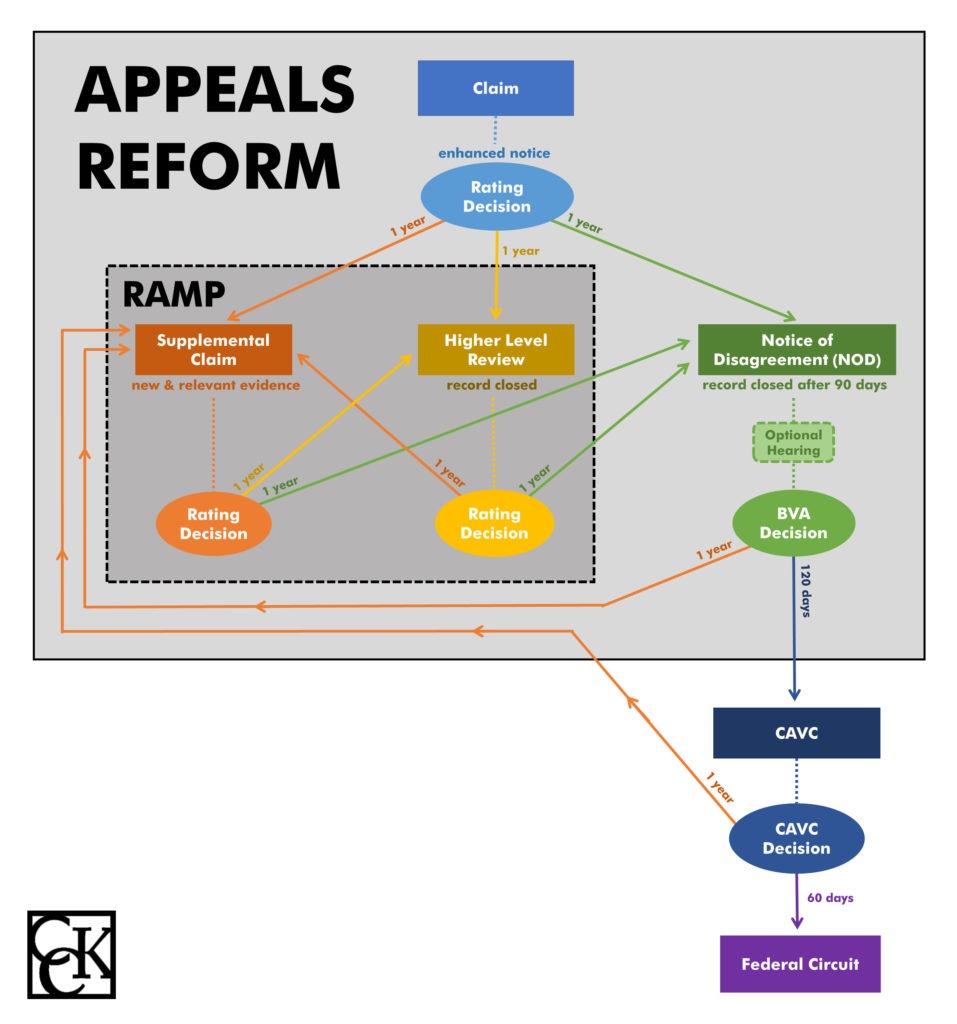Appeals Reform: How Implementation Will Affect Pending Claims and Appeals

CCK Law: Our Vital Role in Veterans Law
The Veterans Appeals Improvement and Modernization Act (Appeals Reform) is scheduled to go into full effect on February 14, 2019. The new appeals system serves to revamp the entire VA disability process in order to provide veterans, their families, and their survivors with increased choice in handling disagreements with VA’s decisions. However, the implementation of Appeals Reform will have an effect on the claims and appeals that remain pending in the Legacy appeals system.
Processing Claims and Appeals Pending in the Legacy System
While Appeals Reform is primarily aimed at creating a new claims and appeals adjudication system, VA must also provide timely and quality decisions on Legacy claims and appeals. When the new system becomes effective, VA estimates having approximately 500,000 pending Legacy appeals. Furthermore, VA predicts it will continue to receive approximately 30,000 Legacy remands from the Board each year from 2020 through 2024. VA’s Comprehensive Plan for Processing of Legacy Appeals and Implementing the New Appeals System is dedicated to eliminating the inventory of these Legacy appeals as quickly as possible while also maintaining timely processing under Appeals Reform.

Many of the pending Legacy claims and appeals will be at a stage where the regulations concerning filing forms, motions, or other actions will be relevant. Under Appeals Reform, VA will preserve and consolidate the regulations concerning Legacy claims and appeals. Moreover, those statutes that existed prior to the effective date of the new system will continue to apply to Legacy claims and appeals. Therefore, the implementation of Appeals Reform will not bring about any substantial changes to the way in which pending Legacy claims and appeals are processed. However, VA proposes to help claimants understand which appeals system applies to their claim, and to provide specific instructions for Legacy claimants to locate the regulation applicable to their appeal. Additionally, VA proposes to explain the options that may be available for Legacy claimants to have their claims or appeals considered in the new system. This includes electing to opt in to Appeals Reform following the issuance of a Statement of the Case (SOC) or Supplemental Statement of the Case (SSOC). If claimants wish to opt in at this point, they will have to do so within 60 days from the date VA issued its decision. Importantly, all of the SOCs will contain information regarding the process for opting in to the new system.
One year after the implementation of Appeals Reform, VA will stop accepting Notices of Disagreement for Legacy claims. This will require claimants to partake in Appeals Reform if they wish to continue their appeals.
About the Author
Share this Post
